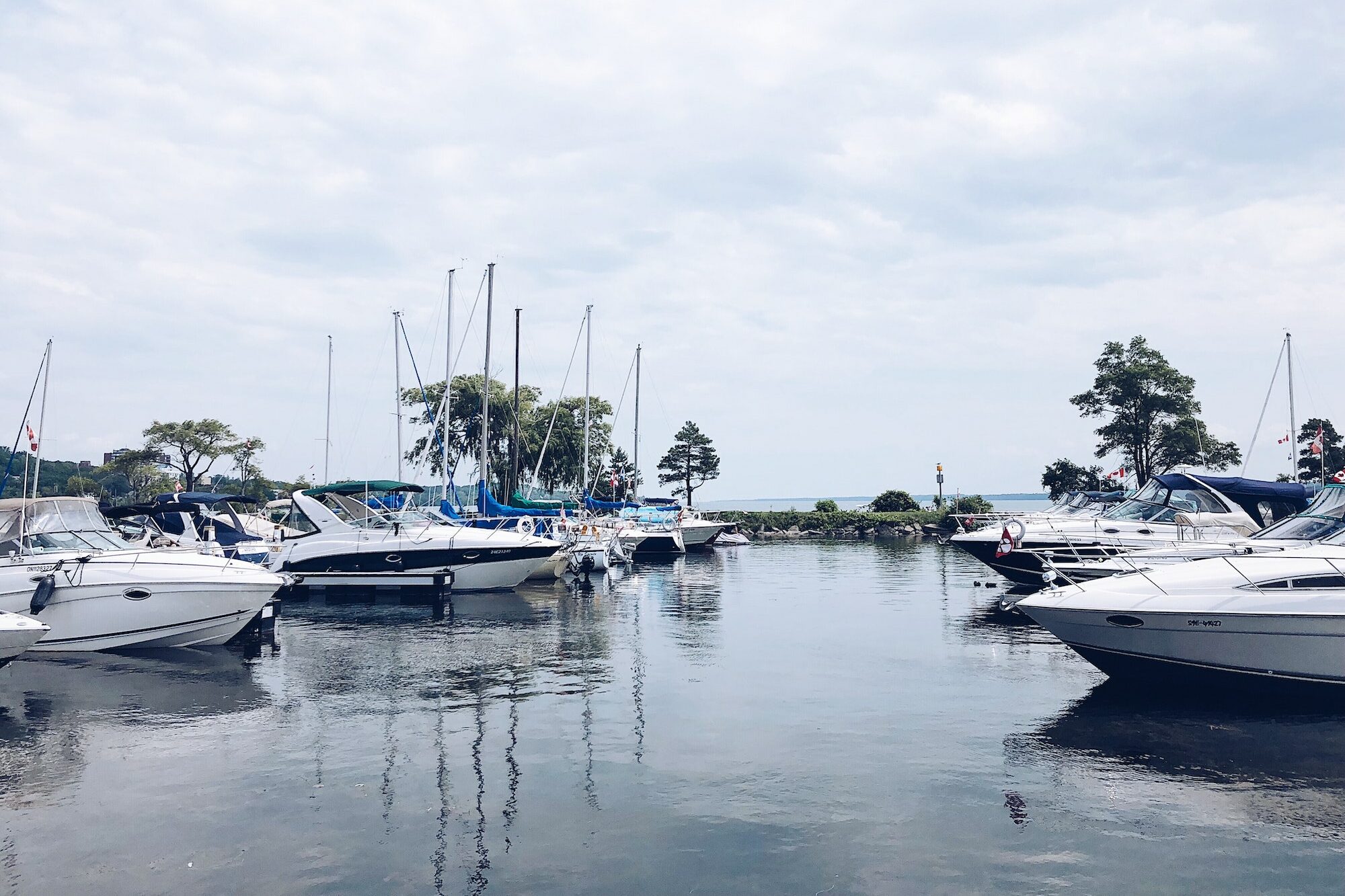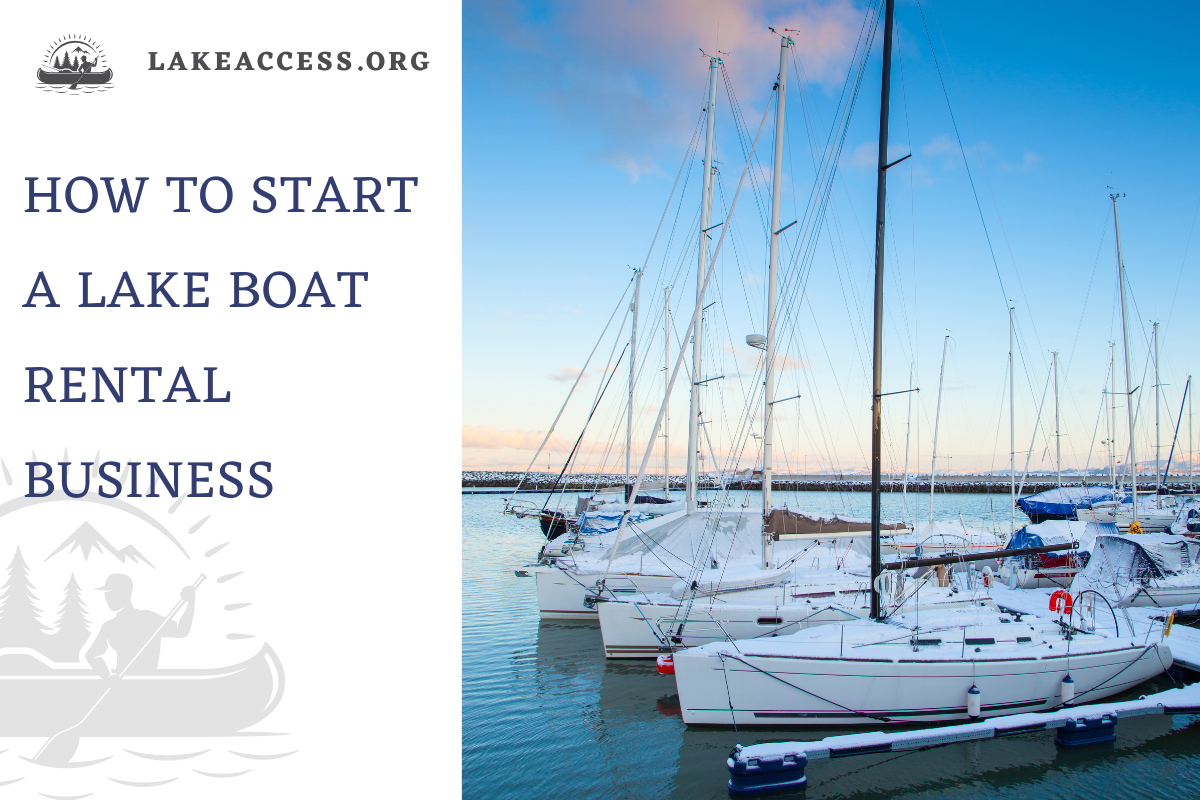Embarking on the journey of starting a lake boat rental business is an exhilarating endeavor that ignites the spirit of individuals who possess a profound love for boating and a burning desire to share their passion for the open waters with fellow enthusiasts. It not only presents the prospect of transforming a cherished hobby into a thriving, financially rewarding enterprise but also grants the ability to bestow upon people a truly unforgettable experience amidst the picturesque beauty of a serene lake. This comprehensive article aims to serve as your trusted compass, directing you through the essential steps required to establish and flourish in the realm of a successful lake boat rental business.
Step By Step Guide to Starting a Lake Boat Rental Business
Research and Planning
Before diving into the boat rental business, conducting thorough market research is crucial. Identify your target market, assess the demand for boat rentals in the area, and analyze the competition. This research will help you understand the market dynamics and make informed decisions regarding your business model, pricing, and marketing strategies.
Legal Requirements
Operating a boat rental business involves complying with various legal requirements. Familiarize yourself with the local regulations and permits necessary to operate a boat rental service. Obtain the required licenses, insurance coverage, and certifications to ensure compliance with safety and legal standards.
Securing a Location
Choose a strategic location near a popular lake or water body that attracts a significant number of boating enthusiasts. Look for a spot with easy access to the water, ample parking facilities, and necessary amenities like fuel stations, restrooms, and docking areas. Consider leasing or purchasing a waterfront property for convenience and visibility.
Acquiring Boats and Equipment
Invest in a diverse fleet of boats suitable for different purposes and customer preferences. Determine the type and size of boats based on the target market and the activities popular in the area. Besides boats, stock up on essential safety equipment, life jackets, navigation tools, maintenance supplies, and other accessories required for a safe and enjoyable boating experience.
Setting Competitive Pricing
Pricing is a critical aspect of your boat rental business. Conduct a pricing analysis to determine competitive rates that offer value for money to customers while ensuring profitability for your business. Consider factors such as boat type, duration of rental, fuel costs, maintenance expenses, and market demand when setting your pricing structure.
Building an Online Presence
In today’s digital age, establishing an online presence is essential for any business. Create a user-friendly website that showcases your boats, services, and pricing information. By utilizing relevant keywords and offering insightful content, you may improve the search engine optimization of your website. Utilize social media channels to interact with your target market and advertise your boat rental company.
Marketing and Advertising Strategies
To reach your target market, use efficient marketing and promotion tactics. Use a variety of offline and online channels, such as pay-per-click (PPC) advertising, local partnerships, print media, SEO, social media marketing, and search engine optimization (SEO). To draw clients, emphasize your boat rental service’s special qualities and advantages.
Managing Customer Reservations
Implement a user-friendly online reservation system to streamline the booking process. Allow customers to check boat availability, select rental dates, and make reservations online. Provide clear instructions and terms and conditions to ensure a smooth booking experience. Promptly respond to customer inquiries and provide assistance when needed.
Providing Excellent Customer Service
Deliver exceptional customer service to enhance the overall experience for your clients. Train your staff to be knowledgeable, friendly, and professional. Offer personalized recommendations, provide safety briefings, and ensure prompt assistance during the rental period. Encourage customer feedback and address any concerns or complaints promptly.
Ensuring Safety Measures
Safety should be a top priority in your boat rental business. Develop comprehensive safety protocols and guidelines for both staff and customers. Conduct regular inspections and maintenance checks on all boats and equipment. Educate customers about boating safety rules, emergency procedures, and the proper use of safety equipment.
Hiring and Training Staff
Recruit a competent team of employees who are passionate about boating and customer service. Train them on boat operations, safety protocols, customer handling, and emergency procedures. Emphasize the importance of professionalism and teamwork in delivering an exceptional customer experience.
Maintaining and Upgrading Equipment
Regularly maintain and service your boats and equipment to ensure their optimal performance and longevity. Implement a preventive maintenance schedule and address any issues promptly. Keep up with the most recent technology developments and think about updating your fleet to provide consumers with newer, more effective boats.
Expanding Your Business
Once your boat rental business becomes established, consider expanding your services. Explore opportunities for additional revenue streams, such as offering boat tours, fishing charters, watersports equipment rentals, or organizing boating events. Collaborate with local businesses to cross-promote your services and expand your customer base.

How to differentiate your lake boat rental business from the rest?
Understanding Your Target Audience
To differentiate your boat rental business successfully, you must deeply understand your target audience. Conduct market research to identify their preferences, needs, and pain points. This information will allow you to tailor your services and marketing efforts to cater directly to their requirements.
Offering Specialized Boat Rental Packages
One way to differentiate your business is by offering specialized boat rental packages. Consider catering to specific customer segments such as fishing enthusiasts, families, or adventure seekers. Create tailored packages that include unique amenities or experiences that align with their interests.
Providing Exceptional Customer Service
Exceptional customer service is paramount for any successful business. Train your staff to deliver top-notch service, ensuring that customers feel valued and well taken care of throughout their entire rental experience. Promptly address any concerns or issues that may arise, going above and beyond to exceed customer expectations.
Creating a Seamless Booking Process
Simplify the booking process for your customers by implementing an easy-to-use online reservation system. Ensure that your website is user-friendly, allowing customers to browse available boats, check availability, and make reservations with just a few clicks. A seamless booking process will enhance the overall customer experience and set you apart from competitors.
Promoting Your Unique Selling Points
Identify your unique selling points and effectively communicate them in your marketing efforts. Highlight what sets your business apart, whether it’s the quality of your boats, the scenic location of your lake, or the personalized services you offer. Emphasize these differentiators in your website content, social media posts, and advertising campaigns.
Ensuring Safety and Reliability
Safety should be a top priority for your boat rental business. Implement strict safety protocols, provide thorough safety briefings to customers, and regularly inspect and maintain your boats. By prioritizing safety and reliability, you build trust with your customers and establish a reputation for excellence.

FAQs
What qualifications are necessary to start a lake boat rental business?
Starting a lake boat rental business requires obtaining various licenses and permits from local, state, and federal governments. Depending on your state’s regulations, you may need a watercraft license and a certified boat captain license. Additionally, you may need a Doing Business As (DBA) certificate, health licenses and permits from the Occupational Safety and Health Administration (OSHA), trademarks, patents, copyrights, as well as industry-specific licenses and permits. On a local level, you might need state-level and county or city-based licenses and permits.
What is the market for boat rental businesses like?
The market for boat rental businesses is booming as people increasingly prioritize experience over material items and want picturesque experiences. This makes the maritime business highly attractive with the proper knowledge, concept, and boat design. The competition in this market is fierce, with a few key players dominating the industry. It’s essential to find a market to serve and consider the population density or volume of tourists in the area. High-density areas or cities with large amounts of tourists tend to be more profitable but also face more competition.
How much does it cost to start a boat rental business?
Starting a boat rental business can be pretty expensive, with start-up costs ranging from $6,000 to $17,000. You’ll need to make a down payment on your boat or boats, purchase equipment such as life jackets and throwable flotation devices, cover boat insurance and boat slip rental, and also cover expenses such as website setup and marketing. Once up and running, you can charge around $100 per hour for boat rental and should have a profit margin of around 60%. If you have one boat and rent it for an average of four hours over 200 days of the year, you’ll be looking at around $80,000 in annual revenue.
Are there any risks associated with starting a boat rental business?
Yes, a few risks are associated with starting a boat rental business. These include liability risk if a customer gets hurt on your watercraft, the need for proper permitting and licensing from local authorities, the high maintenance costs of owning a boat, and the ongoing taxes and fees. Additionally, you must consider the local boat rental market risks, your business’s target audience, and your area’s limitations. Getting insurance to cover potential risks and researching local legislation to ensure you have the proper licenses is essential.
What are the benefits of starting a boat rental business?
Starting a boat rental business offers a variety of benefits, such as sharing your passion, generating good money, and enjoying flexibility. In addition, you get to enjoy meaningful business connections, daily physical activity, unique perks and discounts, and the opportunity to be your own boss. You also have the potential to build a local following and gain access to additional revenue streams. However, the crowded space means that it is essential to analyze the market and find the right supplier and the low margins may make it difficult to incur new expenses and maintain profitability. Additionally, the motivation of employees and high employee turnover may also pose challenges.
What is the best way to promote a boat rental business?
Promoting a boat rental business is key to success. Upgrade your social media presence by creating accounts on popular platforms like Instagram, Facebook, and Twitter. Then, add your company to Google My Business and ask customers to leave reviews on sites like Google and TripAdvisor to spread the word about your business. Keep your website fresh by writing blog posts and creating a lively presence on social media. You can even reach out to local media and invite them to feature your newly opened business.
To attract more customers, create an SEO-optimized website that showcases your brand and services and lists your business through local tourism organizations and websites. Offer special deals like first-time discounts and partner with local attractions, restaurants, bars, and hotels to increase your reach. You can also collaborate with travel writers and social media influencers to share your brand with a larger audience.
Finally, you’ll want to advertise your services. Consider using paid ads on social media and search engines and creating an email campaign and an affiliate and referral program. Research boat rental businesses in your area and online to identify a market gap you can fill. You can also target a niche market by specializing in a particular aspect of the industry, such as charter boat tours.
What type of boats should I choose for a boat rental business?
When deciding what type of boats to choose for your boat rental business, you must consider several factors, such as the sailing route, the harbor, the customer segment, and the environment. For example, suppose you are running a business from a river outlet. In that case, you should opt for canoes and rowboats instead of large yachts, while if you are running an ocean-based business, a variety of boats are available.
Additionally, analyzing competitors at your location and renting out boats that you have knowledge or expertise in can help you make the right decision. Ultimately, selecting the optimal boat that fits your needs is essential, as different boats offer different value propositions for your customers. For example, fishing boats and houseboats are suitable for fishing trips, while sailboats and motor yachts are better for leisurely cruises. You should also consider the engine and battery of the boat, as these should be easily replaceable and serviced to ensure a comfortable and safe journey for your customers.
What types of insurance do I need for a boat rental business?
When starting a boat rental business, securing the appropriate insurance policies is essential to protect the business from potential risks associated with operating in the personal watercraft industry. Insurance coverage for boat rental businesses should include general business liability, mooring or anchoring permits, commercial passenger licensing, fuel delivery and vessel servicing permits, water access permits, watercraft coverage for damage or bodily injury, and hull coverage for damage or loss. In addition, business owners may want to explore additional, comprehensive insurance protection to ensure their business is properly protected.
What are the legal and regulatory requirements for starting a boat rental business?
The legal and regulatory requirements for starting a boat rental business can vary by location but typically include business formation requirements like registering a DBA, obtaining health and safety permits from OSHA, and acquiring trademarks, copyrights, and other intellectual property rights. Additionally, you may need a watercraft license, state-level and local county or city permits, and a landlord contract to apply for a water permit. It is important to do your research and be aware of any high and low seasons for outdoor activities and the maintenance costs and ongoing fees associated with the business. If you need help navigating the permitting process, you can look for business consultants and legal specialists online who can provide guidance.

